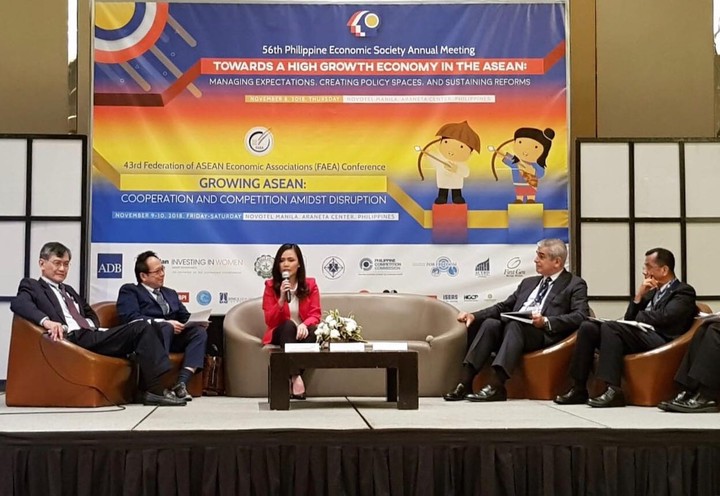Technology and Inclusion in Asia

Abstract
The keynote address will discuss two closely-related challenges in Asia: rising inequality and the impact of technologies. As to the first challenge, growing income inequality is a global concern. Especially in the aftermath of the Asian and global financial crises, widened inequality has received a great deal of public attention. While income disparities across countries including Asia have narrowed significantly over the past several decades—thanks to the robust economic growth achieved by many low- and middle-income economies—income gaps within countries, both advanced and developing, have widened. As a source of increasing inequality, there are a number of factors listed in the literature: 4th industrial revolution, globalization, and market deregulation. Notably, on arrival of new technologies, demand for jobs that require non-routine cognitive tasks has grown faster than jobs requiring routine and manual tasks, widening wage disparities. A detailed analysis of selected Asian economies shows that over the past decade, wages have also grown faster in non-routine/cognitive types of jobs. This would create further income inequality. Hence, there are many ways in which governments can achieve inclusive growth. Supports to infrastructure investments are also critical in setting “enabling” environment of inclusive growth.
The keynote address will discuss two closely-related challenges in Asia: rising inequality and the impact of technologies. As to the first challenge, growing income inequality is a global concern. Especially in the aftermath of the Asian and global financial crises, widened inequality has received a great deal of public attention. While income disparities across countries including Asia have narrowed significantly over the past several decades—thanks to the robust economic growth achieved by many low- and middle-income economies—income gaps within countries, both advanced and developing, have widened. As a source of increasing inequality, there are a number of factors listed in the literature: 4th industrial revolution, globalization, and market deregulation. Notably, on arrival of new technologies, demand for jobs that require non-routine cognitive tasks has grown faster than jobs requiring routine and manual tasks, widening wage disparities. A detailed analysis of selected Asian economies shows that over the past decade, wages have also grown faster in non-routine/cognitive types of jobs. This would create further income inequality. Hence, there are many ways in which governments can achieve inclusive growth. Supports to infrastructure investments are also critical in setting “enabling” environment of inclusive growth.
Panelist
In this forum, I was tasked to focus on the following questions.
-
What do you think is the biggest constraint to building a pool of research scientists and engineers in the country? How might current efforts at industry-academe-government linkage be improved to maximize returns from R&D investments?
-
With the digital revolution, the processing of data is fast becoming an important source of value added. To what extent is data ownership an issue, and could such hinder further innovation?